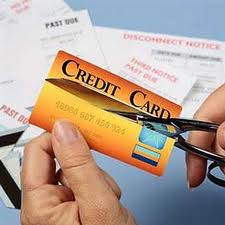Posted by geemiz | Posted in Saving & Investing | Posted on 29-10-2012
Tags: Accounting, Blogging
How many times have you felt that sense of anticipation to cash out or swipe your credit card to purchase attractive marked-down items at the mall? Long-awaited discounted items are strategically displayed at check-out counters or sold in a buy-one-get-one deal to entice consumers. You walk in a store and suddenly find yourself picking items not even in your list to buy.
For Cyril dela Cruz, accountant at the Ramon Aboitiz Foundation Inc. (RAFI) Micro-finance, impulsive buying exploits our impulses to buy our wants for instant gratification. Oftentimes, she said, it occurs when one spots something that stirs a particular passion in him/her.
“Impulsive buying is one of the reasons why we can’t save a portion of our earnings. When products are showcased with a well-crafted promotional message, we purchase them even if they hold no great value to us. Sometimes, impulsive buying can result to a total waste of money,” she explained.
 Living in a tempting world wherein buying new things is just a swipe away, dela Cruz added, it is no wonder why many people are drowned in debt. She observed that many people have overlooked the value of saving.
Living in a tempting world wherein buying new things is just a swipe away, dela Cruz added, it is no wonder why many people are drowned in debt. She observed that many people have overlooked the value of saving.
“Earning is not just about spending your money. It is about how much you save for your future. Saving is a form of financial freedom,” she added, pointing out that ten percent of the income is the ideal amount that should be allocated for savings.
Saving money is one of those tasks that is so much easier said than done. She said that what we save should not be whatever is left over at the end of our shopping spree. One can still resist the temptation of buying if there is a financial plan.
“A financial plan includes your projected income and expenses. Keep a record of your total expenses. There is really a big difference on how much you make and how much you spend,” she said.
She further advised to write down everything where you spend your money at, even small purchases. If your spending records show that you are spending too much as expected, trim down your expenses. Think about your priorities and make cuts you can live with.
As much as possible, pay everything with cash. If you have cash, you can monitor your supply if it is already running low. If you are in a store, only bring enough cash that you need. Extra money can be a temptation to add something in the cart.
“Plan your meals. There won’t be room for unnecessary add-ons if you have no extra budget for it,” she said.
She added that one should also eliminate debts first if he wants to save. Once the budget is freed from debt payment, one can increase his savings.
“Always live within your means. We can still buy items that are cost-effective but have the same quality with the branded ones,” she said.
 The inviting smell of fresh credit cards won’t actually save you. In fact, if you’re not a disciplined payer, it might be your worst enemy, she said.
The inviting smell of fresh credit cards won’t actually save you. In fact, if you’re not a disciplined payer, it might be your worst enemy, she said.
“As much as possible do away with credit cards especially if you are not economically capable of paying them. If you have one, only use it when necessary,” she said.
Dela Cruz added that setting saving goals could help sustain the habit of saving. This drives the person to save because of a set purpose—either long-term or short-term goals.
Set a particular date for accomplishing your goals. For long-term goals, they need critical planning to achieve them. If you want to save money for your retirement, you need to figure out how much money should you set aside for you to live comfortably even 10 to 30 years after you stop working.
“It is also wiser to keep track of your savings in an interest-bearing savings account. Investing into business can also help the money grow, though it is risky to venture into businesses if you can’t personally manage them,” she stressed.
In RAFI Micro-finance, clients have a mandatory savings of Php 50 per week. They are also provided with training on financial education, business tips, and basic accounting, among others.
An annual award for the highest saver micro-entrepreneur is also given to recognize nanay-client who has no default contribution in her savings and has a complete attendance in center meetings.
At present, around 16,000 nanays-clients are availing the savings offered by RAFI Micro-finance. Other services include loans and insurance.
“In this way, there are saving not just for their business but also for their families. We better save now than never,” dela Cruz said.
Frugal. Street wise. Economical. Thrifty. Whatever way you call it, we save for our own future. Remember, material things depreciate over time. But life ten years after is a life purposely saved. (By Chrisley Ann Hinayas/Ramon Aboitiz Foundation Inc.)
Like Geemiz on facebook | Follow @geemiz on twitter | Follow GeeMiz on tumblr
Photos from: bradgillies.com and i.istockimg.com

